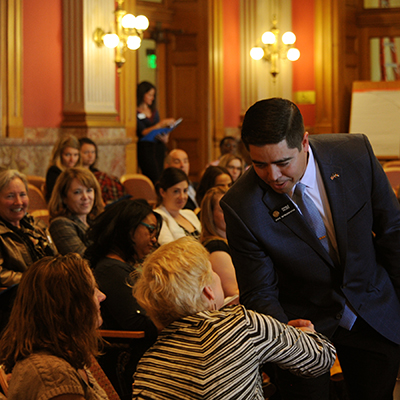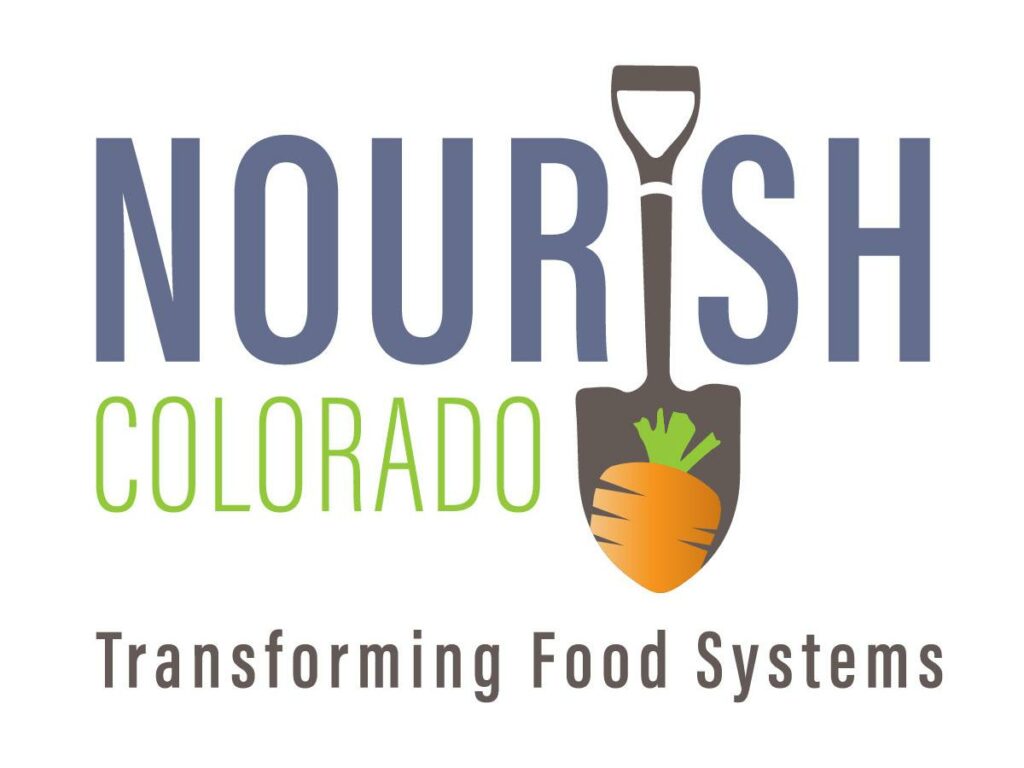October 2017 Policy Digest
 You’re Invited!
You’re Invited!
Let us know what barriers to healthy eating and active living exist in your community!
Public policy is best when it is informed, by you guessed it, the public! As we start to form our policy priorities for 2018, we want to hear from you! What barriers to health is your community facing? During this listening session, we will reflect on the 2017 legislative session, provide federal and local policy updates, and most importantly, listen to your thoughts and ideas.
Rifle:
Oct. 16th
3:00 – 4:30 pm
Rifle Branch Library
Carbondale:
Nov. 2nd
1:00 – 2:30 pm
Carbondale Branch Library
Register Now! 2017 HEAL Summit
Our annual summit will be held Nov. 30 to Dec. 1 at the Double Tree Denver-Stapleton North Hotel and will feature keynotes from Tamika Butler, ED of the LA Neighborhood Land Trust and Dwayne Wharton, Director of External Affairs for the Food Trust. Learn more and register here!
State Policy Update
 2017 Special session – October
2017 Special session – October
Governor Hickenlooper has issued an executive order calling the legislature into a special session, set to begin on October 2nd at 10am. The purpose for this session, which brings all 100 legislators back to the Capitol for a minimum of three days, is to correct a technical error that occurred during the late session flurry to pass SB17-267, the Sustainability of Rural Colorado Act.
Prior to the passage of SB 267, recreational marijuana sales were subject to the state’s 2.9% regular sales tax and a 10% special marijuana tax. SB 267 combined those two taxes into one 15% special marijuana tax. And therein lies the problem. Under the original taxing structure, special districts such as Regional Transportation District (RTD) and the Scientific and Cultural Facilities District (SCFD) were able to collect sales tax on recreational marijuana. Making marijuana taxes solely a special tax inadvertently eliminated the ability of special districts to collect taxes on recreational marijuana sales.
Unfortunately, politics got in the way of what should have been an easy fix to a significant problem and the special session ended without action.
Early peek at 2018 legislative session – January-May
Lunch Shaming /School Lunch Reimbursement – LiveWell recently wrote a blog on the topic of lunch shaming. In brief, lunch shaming occurs when a student does not have sufficient funds in their school lunch account to purchase lunch. As a result, the child’s hand may be stamped as a reminder to tell their parents they need money in their account or they may be given a letter to take home to their parents. If the student incurs enough debt, some schools then provide the student with an alternative lunch, such as a cheese sandwich. All these practices make it clear to others that the student is unable to pay for their lunch, and thus the shaming.
This is a difficult issue to address as school lunch programs operate on very slim budgets. Total debt accumulated from unpaid lunches of just a few thousand dollars in a school district can dramatically impact the ability of school lunch staff to operate efficiently and can significantly impair their program. Many students eligible for free and reduced lunch (which picks up the copay the student is responsible for) are not part of the program simply because their parents did not fill out and return the necessary paperwork. This could be due to not understanding the information being requested, a belief that they would not qualify, or fear that their family will face deportation or customs enforcement as a result of seeking help from the FRL program. We work closely with school districts across the state and can confirm that most districts will not turn away a hungry child, but that child might get a much smaller/cold meal that opens that child up to the stigma attached to not being able to pay for their warm meal.
LiveWell will continue to engage in discussion with legislators and partner organizations on school lunch related legislation as the 2018 session nears. Our priority is to ensure that kids do not go hungry at school and that low-income families, who are already struggling to make ends meet, are not penalized for their inability to pay for their child’s lunch. LiveWell feels strongly that families who are making hard choices on what bills to pay given their limited income should not be worried that their children will go hungry while attending a public school and that these families should not be further penalized by punitive fees that further exacerbate their financial situation.
Colorado Food Systems Advisory Council (COFSAC) – last year’s bill to begin developing some infrastructure and state investment in Colorado’s food system failed late last session in a bit of a political storm. LiveWell, along with numerous partners, will be running this bill, or some version of it, again in 2018.
SNAP Incentives – LiveWell manages the Double Up Food Bucks program in Colorado which supplies incentives to farmers’ markets, farm stands, select stores, and other retail outlets enabling SNAP clients to double their money (up to $20) to exclusively purchase Colorado grown fruits and vegetables. We are looking at the possibility of seeking state funding for additional incentives to begin to develop stability and sustainability in this popular program that benefits SNAP customers, retail outlets, local economies, and Colorado farmers.
Transportation – Unlike last year, we do not anticipate the General Assembly to tackle transportation funding via a referred measure to the voters. Instead, we will most likely see transportation funding on the November ballot as an initiated measure. Given that the composition of the legislature remains the same in 2018 as it was in 2017, and the total melt-down that occurred late in the session to find a transportation funding compromise, the prospects for a different outcome in 2018 are minimal. Consequently, the Denver Metro Chamber of Commerce announced in September that they will lead the charge to place a transportation funding measure on the 2018 ballot via the initiative process. LiveWell will remain engaged with the coalition of partners joining the Chamber in this endeavor and continue our advocacy for dedicated funding for active transportation needs.
Local Policy Update
Join Us in Supporting “Our Denver”
LiveWell Colorado is endorsing questions 2A-2G on Denver’s ballot this November, which would enhance infrastructure across the city. In particular, LiveWell is thrilled to see the inclusion of a new and much-needed recreation center in the Westwood neighborhood (question 2G). Also relevant to our mission is the substantial investment the ballot measures would make into the city’s biking and walking network, including long-overdue improvements in Globeville and Elyria-Swansea (question 2A). If you are a Denver resident, please join us in voting yes on question 2A-2G.
Federal Policy Update
Farm to School Act of 2017
Two bills were introduced in Congress on September 6, 2017 to reauthorize the Farm to School program. Identical to each other, and bills introduced during the last Congress, the bills seek to increase funding for farm to school programs from its current $5 million to $15 million. The House version is H.R. 3687, sponsored by Jeff Fortenberry (R-NE) and Marcia Fudge (D-OH) and the Senate version is S. 1767, sponsored by Patrick Leahy (D-VT) and Thad Cochran (R-MS).
The initial US Department of Agriculture Farm to School grant program was incorporated in the Healthy Hunger Free Kids Act of 2010. That became the Child Nutrition Act which Congress has thus far failed to complete. Faced with a five year grant request total of 1,600 request totaling $120 million, the National Farm to School Network with support from many other national and state partners, decided to run a bill to begin to address the desire for these programs across the country. The bill also ensures the inclusion of early care and education sites, summer food service sites, after care program sites and tribal schools and producers. The bill also focuses on increasing participation among beginning, veteran and socially disadvantaged farmers and ranchers.

